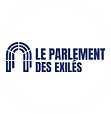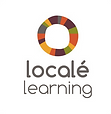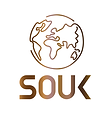
Better Politics Index 2025
Political Leadership as Democratic Infrastructure
The Better Politics Index is the world's first index focused on measuring the support and development of political leaders as key democratic infrastructure. It offers an evidence-based starting point for analyzing the presence, quality, nature and public perception of the leaders at the center of our democracies—a key element of democratic health that lacks consistent global measurement.
The Ten Countries

UK
Country ranking: 3/10
Overall score: 57/100
France
Country ranking: 5/10
Overall score: 51/100
Brazil
Country ranking: 4/10
Overall score: 56/100
Philippines
Country ranking: 6/10
Overall score: 50/100
Kenya
Country ranking: 7/10
Overall score: 49/100
Australia
Country ranking: 2/10
Overall score: 65/100
Poland
Country ranking: 9/10
Overall score: 43/100
Germany
Country ranking: 1/10
Overall score: 70/100
Lebanon
Country ranking: 10/10
Overall score: 32/100
Country | Rank | Score | Formal Political Leadership Development | Institutional Environment | Political Leadership Ecosystem | Public Trust and Confidence |
|---|---|---|---|---|---|---|
Germany | 1 | 70.19 | 92.75 | 77.53 | 46.67 | 44.54 |
Australia | 2 | 65.11 | 52 | 64.18 | 100 | 39.11 |
United Kingdom | 3 | 57.24 | 65.25 | 72.28 | 46.67 | 31.12 |
Brazil | 4 | 56.8 | 47.25 | 93.2 | 50.33 | 29.18 |
France | 5 | 50.58 | 63.25 | 70.1 | 13.33 | - |
Philippines | 6 | 49.65 | 50 | 49.38 | 46.67 | 54.29 |
Kenya | 7 | 48.6 | 55 | 71.77 | 23.14 | 37.48 |
Argentina | 8 | 47.84 | 30.5 | 79.19 | - | 36.06 |
Poland | 9 | 43.3 | 70 | 47.24 | 1.96 | - |
Lebanon | 10 | 32.31 | 32.75 | 34.05 | - | 28.39 |
The Four Dimensions
The Better Politics Index assesses political leadership systems across four dimensions:
(1) Formal Political Leadership Development; (2) Institutional Environment; (3) Political Leadership Ecosystem; and (4) Public Trust and Confidence.
The Index is designed to open a field of measurement, not to close the debate. In the inaugural 2025 version, the gaps in the evidence and data are significant and illustrative. These gaps will evolve as data availability matures. We welcome and value any feedback.
Dimension 1
Formal Political Leadership Development

Do formal political systems (parliaments, legislatures, parties, etc.) develop and support leaders?
This dimension measures the presence within national legislatures of support for current leaders; the presence of support from political parties to pre-candidates, candidates and current leaders; and the presence of parliamentary codes of conduct. It includes parliamentary inductions, policy training programs, political party media training , coaching etc.
Dimension 2
Institutional Environment

How conducive are the institutional conditions within which political leaders work to success?
This dimension measures the availability of legislative staff; the ratio of legislative support staff to members; the availability of office facilities; the representativeness of the legislature (across gender, ethnicity, religion and language); and the ability of the opposition to challenge the government.
Dimension 3
Political Leadership Ecosystem

What are the characteristics of the political leadership entrepreneur ecosystem that develops and supports leaders?
This dimension measures the number of civil society political leadership entrepreneur (PLE) programs; the number of individuals trained and developed by these programs; and the number of months the programs can sustain themselves with their current funding.
Dimension 4
Public Trust & Confidence

How do citizens perceive politicians and political institutions?
This dimension measures how confident citizens feel in their government, political parties, and political leaders, as well as overall percentage voter turnout.
Data sources:
-
Dimension 1: Desk Research, Inter-Parliamentary Union (Parline).
-
Dimension 2: Inter-Parliamentary Union (Parline), Global Leadership Project, V-Dem.
-
Dimension 3: PLEN survey (21 organizations in this release).
-
Dimension 4: World Values Survey, International IDEA Voter Turnout Database.
A full version of our methodology can be found in the report.
We welcome methodological feedback, new data, and corrections from parliaments, researchers, and civil society. Please contact the Better Politics Foundation to help strengthen future releases.
Five Insights
01
Regulations Are a Positive But Not Sufficient Step
Several Index countries have strong legal requirements for leadership training from political parties (Brazil and Argentina mandate 20% of political party funds to some form of training, and German legislation requires it). However, the provision of training and development to politicians varies widely. While regulations establish expectations, they don't guarantee meaningful support for current or aspiring leaders.
02
The Ecosystem Compensates
Strong political leadership entrepreneur (PLE) ecosystems and legislative support exist where formal party development systems are weakest, for example in Australia, Philippines and Kenya. This pattern raises questions about the role of political parties in developing political talent and whether compensation by parliaments and civil society is sufficient.
03
The Focus is on Campaigning Not Governing
In most Index countries, political training and development emphasizes pre-election candidate preparation over ongoing professional development for sitting politicians. Germany is the exception, providing support across the political spectrum for both candidates and current leaders. This lack of support of current leaders leaves a gap in continued support and upskilling for those who govern.
04
Rapid Change Requires Rapid Adaptation
The UK demonstrates that political leadership training infrastructure needs to be agile to adapt to quickly changing political environments. Structured orientation programs existed for MPs in Westminster, but by 2024 they could not keep pace with the number of new MPs. Leadership development infrastructure cannot be taken for granted; it must be embedded in multiple layers of a political system.
05
We Have Data and Funding Gaps to Fill
To name just some of the gaps, we have no outcome measures linking training and development to leadership effectiveness, no systematic way to measure the quality of support, and no global dataset on violence against politicians. The emerging field of political leadership development is working to address these gaps, but requires much more investment to do this effectively.
Acknowledgement of Experts and Contributors
The Better Politics Foundation gratefully acknowledges the insights, time and expertise of the advisors and experts who contributed to the Better Politics Index 2025. Their input has been invaluable in shaping the methodological framework, refining indicators and contextualizing findings across regions.
Advisors and Experts
Contributing Institutions
Pew Research makes it clear: people think democracy gets better when political leadership gets better. The Better Politics Index is the first global tool to measure that leadership — and to guide how we strengthen it.
"
Lisa Witter
CEO, Better Politics Foundation

This index is crucial to raise awareness of the need to invest in preparing and supporting the people that do politics if we want a better democracy.
"
Marcos Peña
Author and former Chief of the Cabinet of Ministers of Argentina

"
The Index will be highly valuable for Lebanese stakeholders, given the current focus on accountability and reforms.
Hania Knio
President, International Federation of Liberal Youth







































%20logo.png)
